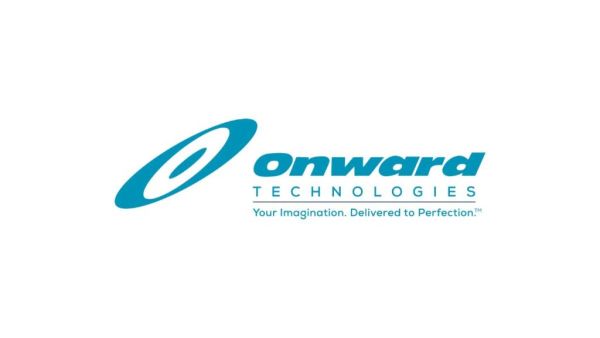The United States has made a major policy shift in 2025 that could reshape the future of global entrepreneurship. For the first time, business owners, startup founders, and sole proprietors can self-sponsor their H-1B visa without needing a traditional US employer.
This change redefines who qualifies as an “employer” under the H-1B visa program, making it significantly easier for foreign-born innovators to build and scale their ventures on American soil.
What’s New in the 2025 H-1B Visa Policy?
Announced at the end of 2024, the new H-1B visa rule officially opens doors for individuals who own or run their own businesses. Previously, founders needed a separate US-based employer to petition on their behalf, often forcing workarounds or reliance on third parties.
Under the updated guidance from US Citizenship and Immigration Services (USCIS), eligible entrepreneurs can now:
- Sponsor themselves under their own company.
- Serve as both owner and employee if the business structure supports this dual role.
- Compete for H-1B visas through the standard or cap-exempt application process.
Who Can Qualify? Key Eligibility Requirements
While the opportunity is huge, it comes with specific conditions that must be met. To qualify for a self-sponsored H-1B visa as a founder or business owner in 2025, applicants must:
- Own or operate a legitimate US-based business.
- Prove the company’s financial viability, including the ability to pay the H-1B wage.
- Establish an employer-employee relationship, even if you’re the sole owner.
- Have a “specialty occupation” requiring highly specialized knowledge.
- Possess at least a bachelor’s degree or higher in a field related to the job.
USCIS makes it clear: the applicant’s role must involve theoretical and practical application of advanced knowledge, simply running a business is not enough.
How Long Is the H-1B Visa Valid for?
The H-1B visa typically comes with:
- Initial validity of 3 years
- Extensions up to a total of 6 years
- Additional extensions possible if the applicant is in the process of obtaining permanent residency (green card)
It’s worth noting that new H-1B applicants are subject to an annual lottery system, unless they qualify for a cap-exempt status, often applicable to universities or non-profit organizations.
Why the Change?
This bold move aligns with the U.S. government’s broader strategy to boost innovation, attract skilled professionals, and create new jobs. The Department of Homeland Security (DHS) emphasized the long-term benefits of this decision, stating:
“If more entrepreneurs are able to obtain H-1B status to develop their business enterprise, the U.S. could benefit from the creation of jobs, new industries, and new opportunities.”
This update not only lowers barriers for ambitious founders but also strengthens the U.S.’s position as a top destination for global entrepreneurship.
Looking to Apply? Here’s What You Should Do Next
Form a U.S. business entity (LLC, Corporation, etc.) with the right structure that supports a legitimate employer-employee relationship, even if you are the sole founder. This means establishing a board of directors or advisory board that can oversee your role and make independent employment decisions.
1. Build a Solid Business Plan
You must demonstrate that your company is more than just an idea. A well-developed business plan should outline:
- Your product or service
- Target market and competitive landscape
- Financial projections
- Hiring plans and job creation potential
This not only helps in the visa process but also increases your chances of success as a startup.
2. Prove Financial Capability
To qualify, your startup needs to show it can pay the prevailing wage for your specialty occupation. That includes:
- Bank statements
- Investor funding records
- Payroll capability
- Cash flow forecasts
This evidence assures USCIS that the business is financially sound enough to support your H-1B employment.
3. Match Your Role with a Specialty Occupation
Your job must meet the H-1B requirement of being a specialty occupation, meaning it requires a bachelor’s degree or higher in a specific field. Common H-1B-eligible roles for startup founders include:
- Software engineer
- Data scientist
- Financial analyst
- Biotech researcher
- AI specialist
Your academic background must align with the role you’re applying for.
4. Maintain a Clear Employer-Employee Relationship
Even as a founder, USCIS wants to see that your employment is overseen by someone with the authority to hire, fire, or supervise you. This is often handled by:
- An independent board of directors
- A CEO or other officer with hiring authority
Without this, your petition risks denial due to lack of separation between ownership and employment.
H-1B Validity and Extensions
The H-1B visa allows an initial stay of three years, with the possibility of extensions up to six years. Further extensions may be available if you’re in the process of applying for lawful permanent residency (green card).
However, it’s important to note that H-1B visas remain subject to an annual cap and a lottery system, unless your company qualifies for an exemption (e.g., a nonprofit or research institution).
What This Means for Aspiring Founders
If you’re an international entrepreneur dreaming of launching your business in the U.S., 2025 is the year to act. The self-sponsorship policy opens new pathways to work and grow legally in the country, provided you meet the strict USCIS standards.
Startups and solo founders now have a clearer, more direct route to securing the coveted H-1B, without relying on external employers.
Why This Matters
This update reflects a strategic shift by the U.S. to attract global talent and foster innovation from the ground up. According to the Department of Homeland Security, making the H-1B more accessible to entrepreneurs could lead to job creation, new industries, and broader economic growth.
The U.S. has long been home to tech giants founded by immigrants. With this new pathway, the next wave of global founders may now find it easier to launch and scale their ventures on American soil.
Follow and connect with us on Facebook, Twitter, LinkedIn, Instagram and Google News for the latest travel news and updates!









